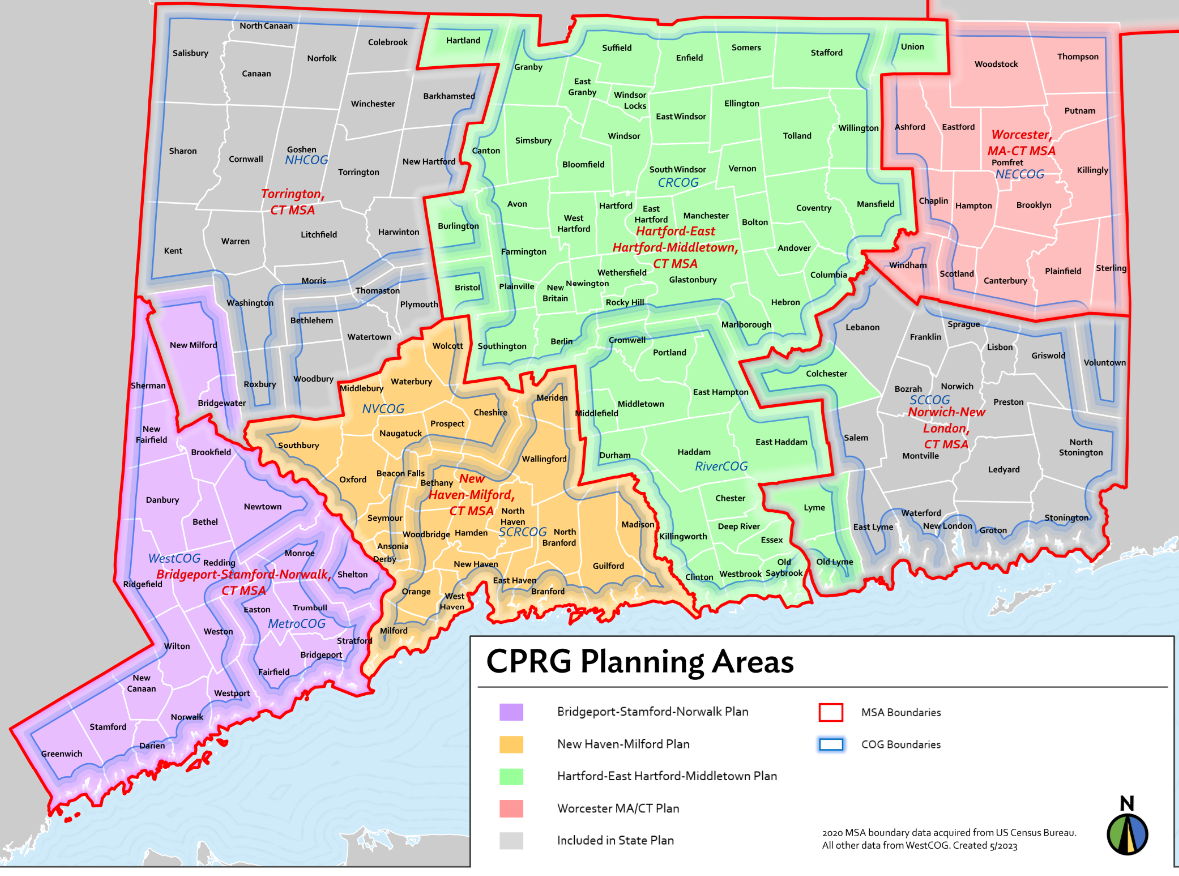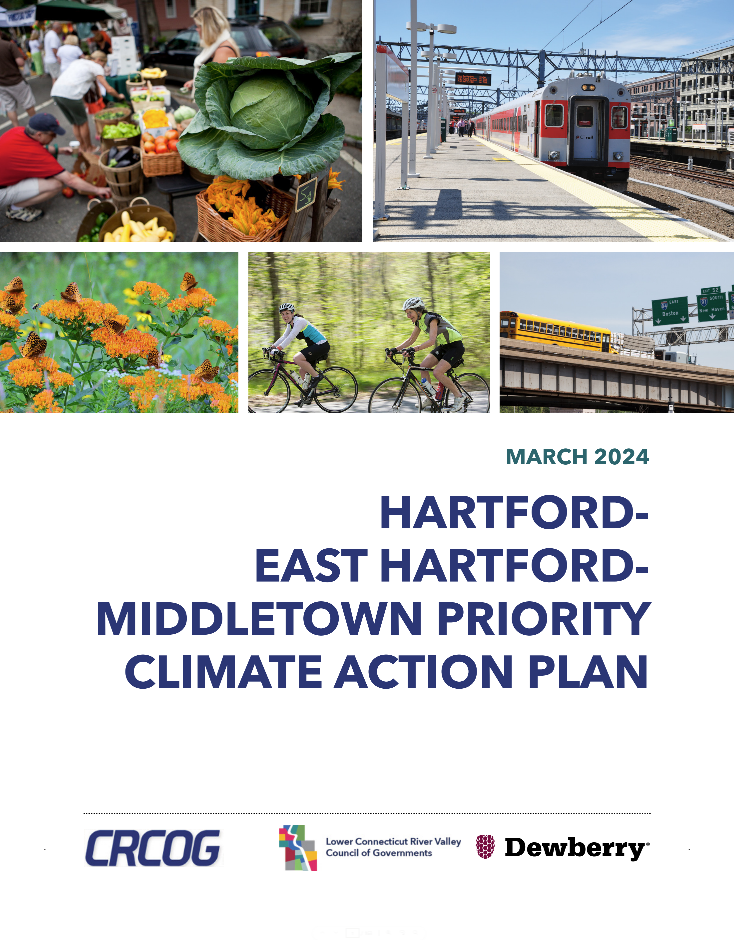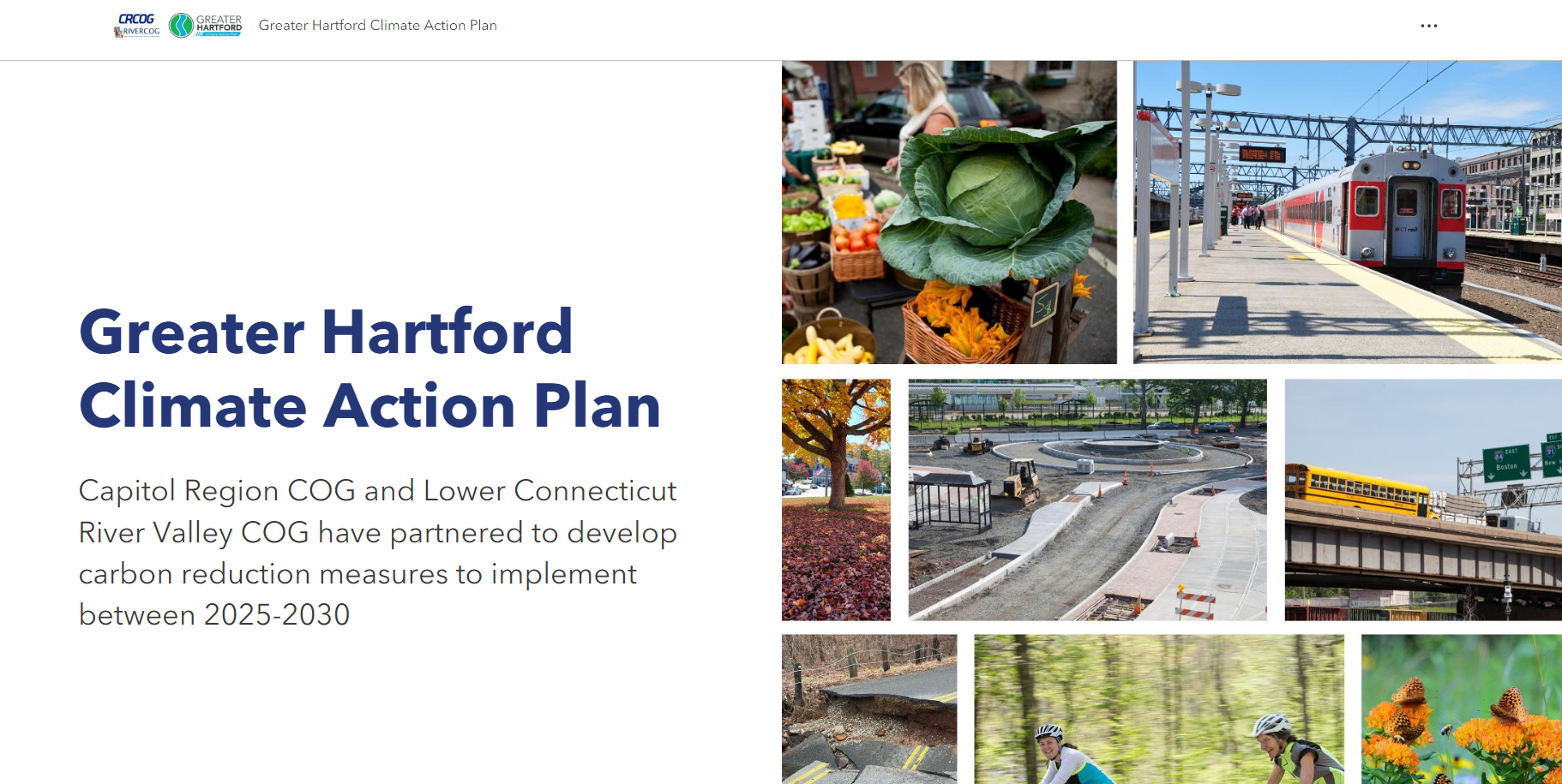Regional Priority Climate Action Plan (CPRG)
Climate Pollution Reduction Grant (CPRG) Overview
CRCOG is developing a regional climate action plan, supported by the EPA’s Climate Pollution Reduction Grants (CPRG), a five-billion-dollar program created under the Inflation Reduction Act to help state and regional governments reduce greenhouse gases. The first phase involves noncompetitive planning grants at both the state level, and then to the 67 most populous Metropolitan Statistical Areas (MSAs). In the case of Connecticut, three MSAs received one-million-dollar planning grants: Hartford-East Hartford-Middletown (led by CRCOG), Bridgeport-Stamford-Norwalk (led by MetroCOG), and New Haven-Milford (led by SCRCOG).
Figure 1: Municipalities in green will be included in the Hartford-East Hartford-Middletown MSA's Regional Climate Action Plan.

Project Background
The CPRG program consists of two primary phases – planning and implementation. The major deliverables for the planning phase are a Priority Climate Action Plan (PCAP) and a more detailed Comprehensive Climate Action Plan (CCAP). Approximately $4.6 billion in competitive funding will be available during CPRG’s implementation phase. All eligible implementation projects must be identified within the corresponding regional or statewide PCAP measures. Our PCAP highlights the following short-term, implementable greenhouse gas (GHG) reduction measures by sector:
Electricity Generation
- Solar on Affordable Housing: Install renewable energy (solar and battery) on residences owned by municipal housing authorities and municipality-owned affordable housing
- Solar, Battery Storage, and/or Microgrids for Municipal Buildings, Properties, and Schools: Install solar panels, add battery storage and develop microgrids on buildings and properties owned by municipalities (e.g. schools, town halls, parking lots)
Transportation
- Municipal Electric Vehicle (EV) Fleet Conversion: Convert light duty municipal fleets to electric vehicles (EV)/hybrids, install municipal changing infrastructure, and switch municipal gas-powered equipment, such as leaf blowers, to electric
- Public EV Chargers: Install public EV charging infrastructure and fund maintenance of EV charging infrastructure
- Biodiesel/EV School Buses: Encourage municipality-owned and privately-owned school buses switch to 20 percent biodiesel (B20) as an interim measure with a long-term focus on converting light duty municipal fleets to electric vehicles (EV)/hybrids
- Transit Priority Corridor Improvements: Pursue recommended improvements for at least one of the six transit corridors highlighted in Metro Hartford Rapid Routes Transit Priority Corridors Study
- Roundabout Projects: Develop and implement roundabout projects across the region, with a focus on LIDACs
- Complete Streets Projects: Encourage mode shift across the region with complete streets projects that make it safer and easier to bike and walk for all users
Agricultural/Natural & Working Lands
- Urban Tree Canopy: Increase urban tree canopy in municipalities across the region
Waste and Materials Management
- Residential and Academic Food Waste Diversion: Establish and expand residential and academic food waste diversion programs and examine ways to increase utilization of anaerobic digestion
Commercial/Residential Buildings
- Energy Audits and Implementation Support for Commercial and Residential Buildings: Expand the region’s commercial and residential energy audit programs and provide support for implementation
- Energy Efficiency Upgrades to Municipal Buildings: Undertake energy efficiency upgrades to municipal buildings
Resources
Past Events
[space]
Frequently Asked Questions (FAQs)
Local Government Strategy Series
This resource provides an overview of greenhouse gas (GHG) emissions reduction strategies local governments can use to achieve economic, environmental, social, and human health benefits. Specific strategies include: energy efficiency, transportation, community planning and design, solid waste and materials management, and renewable energy.



